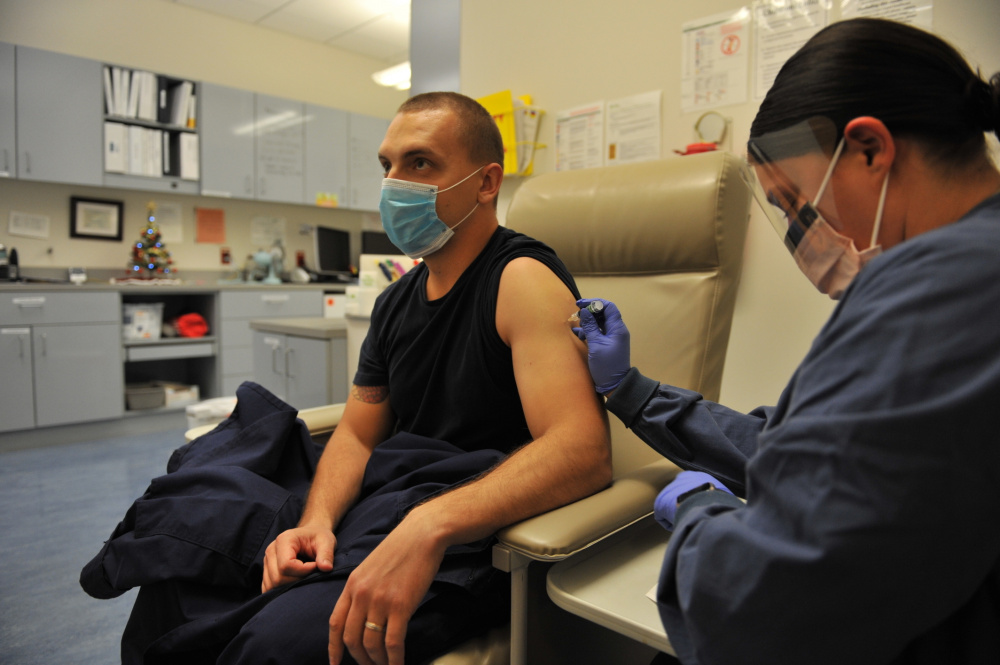Getting an annual seasonal flu vaccination is more important than ever to protect yourself, your shipmates, and your families. Vaccination is expected to increase your resilience to illness and reduces the strain on healthcare systems responding to the COVID-19 pandemic. Flu vaccinations are mandatory and must be recorded by Jan.15, 2021, for Coast Guard active duty members and the reserve workforce to include all selected reserve (SELRES) and individual ready reserve (IRR) members that are actively drilling.
It is also mandatory for Child Development Services personnel, including certified Family Child Care Providers, and civilians, contractors, and auxiliarists that provide direct healthcare patient care, as well as, for recreation personnel in the youth programs at Borinquen, Puerto Rico, Cape Cod, Massachusetts, Kodiak, Alaska, and Petaluma, California.
To date, the Coast Guard has received approximately 47% of the ordered vaccines for active and reserve forces and anticipates receiving the remainder of the order within upcoming weeks. Approximately 45% of active duty and 35% of reserve personnel have been immunized thus far, which is the highest vaccination rate among all of the services.
“One of the most important things about the flu season this year is the presence of coronavirus,” said Lt. Cmdr. Iman Martin, Chief of Preventive Medicine and Population Health. “We want people to get vaccinated as soon as stock permits and advise that people physically distance (remaining at least six feet away from each other whenever possible), wear their masks, wash their hands regularly, and try their best to stay safe from the coronavirus, while also taking precautions to protect from the flu.”
The CDC recommends that it is best to have your flu vaccine completed by early November in order to ensure that you have time—usually two weeks—to develop an immune response before there is a widespread transmission. A flu vaccine in this period generally provides protection throughout the entire flu season.
“Staying home when you are sick, disinfecting frequently touched surfaces, getting plenty of sleep and exercise, being mindful of stress, drinking plenty of fluids, and eating nutritious food will help during this unprecedented Flu – COVID season.” said Martin.
While the COVID-19 vaccines have yet to be distributed, you can take action now to reduce your risk of serious illness by taking the flu vaccine.